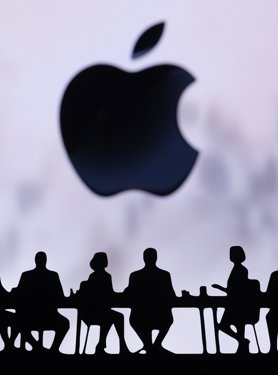Find your perfect career match
If you’re ditching the dating apps this year, find your perfect career match with our MyCareerMatch quiz.

Data collection
Data science is a concept businesses use to collect, sort, manage and use your data in order to generate results that help their business achieve success and personalise results for each individual customer. In this case, the results would be who they’re matching you with. The data in question includes stuff like gender, religious beliefs, geography, photos, swiping history etc., etc., varying from app to app. When you sign up to the apps, they might ask you to fill out a few tick boxes about your likes and dislikes; do you drink? Do you like cats? Are you … a Virgo? The more information they can get from you, the more effective their algorithms will be.
Depending on what app you’re using and what permissions boxes you’ve ticked, you may have data taken from your socials. In fact, it’s not just social media, some apps obtain information from your entire scrolling history from streaming services to online shopping. The idea behind this is that you’re not always necessarily truthful when you’re curating your profile. You’re probably less likely to include information that makes you seem ‘uncool’, so they use the information that shows the real you in order to find your actual ideal partner instead of the one you’ll get bored of after two months and have to download the app again.
Algorithms
Once they’ve gathered enough of your data, the apps put it to work through complex algorithms designed to calculate compatibility scores. These scores determine how likely you are to connect with someone based on your shared interests, swiping behaviour patterns, subconscious preferences.
For example, if you keep swiping right on people who have cats, the algorithm takes note and starts prioritising profiles that feature cats. If you spend more time reading a particular type of bio, the app might put similar profiles to the top of your queue.
Some platforms, like Hinge, use a system called the Gale-Shapley algorithm, designed in 1962 by David Gale and Lloyd Shapley to solve the stable marriage problem, which essentially ranks potential matches based on mutual interest. This ensures you’re not just matched with people you like, but with those who are also likely to be interested in you. Disheartening, I know.
Predictive matching
As dating apps evolve, AI is playing a bigger role in your love life. Some apps analyse your past dating behaviour, like who you’ve matched with, how long you’ve chatted for, whether those conversations led to actual dates, to refine their recommendations. The ultimate goal is to improve your chances of finding a lasting connection instead of just endlessly swiping.
Certain apps also experiment with image recognition technology to identify patterns in physical attraction. If you tend to match with people who have ginger hair or a certain style the app may start showing you more people who fit that aesthetic. That’s why all the potentials at the top of your pile are your ‘type’, and why they’re less and less your type towards the end of the swiping.
The curse of the paywall
Of course, dating apps aren’t just there to help you find the one. They’re also businesses, and your data is incredibly valuable. Most apps offer freemium models, where users can pay for extra visibility or swipes. This monetisation strategy is informed by the exact same data-driven insights. I.e., if the app knows that people tend to pay for the premium version after a certain swipe count, they can optimise the free experience just enough to encourage a subscription.
The annoying bit is that a lot of apps don’t just encourage you to upgrade; they make sure your best matches are locked behind the paywall. You might notice that after a while, your free swipes seem less exciting, which is an intentional strategy designed to make upgrading hard to resist.
Some apps also partner with advertisers to target users based on their dating habits. If you’ve ever noticed ads for romantic getaways or engagement rings after spending time on a dating app, that’s not a coincidence.
The future of dating apps
With AI and machine learning advancing rapidly, the future of online dating is likely to become even more personalised. We might soon see apps using voice recognition to analyse how people speak in video chats, or even biometric data like heart rate responses to certain profiles. Nice!
If you’re interested in learning more about data science and machine learning, explore our courses and get involved.
Find your perfect career match
If you’re ditching the dating apps this year, find your perfect career match with our MyCareerMatch quiz.






